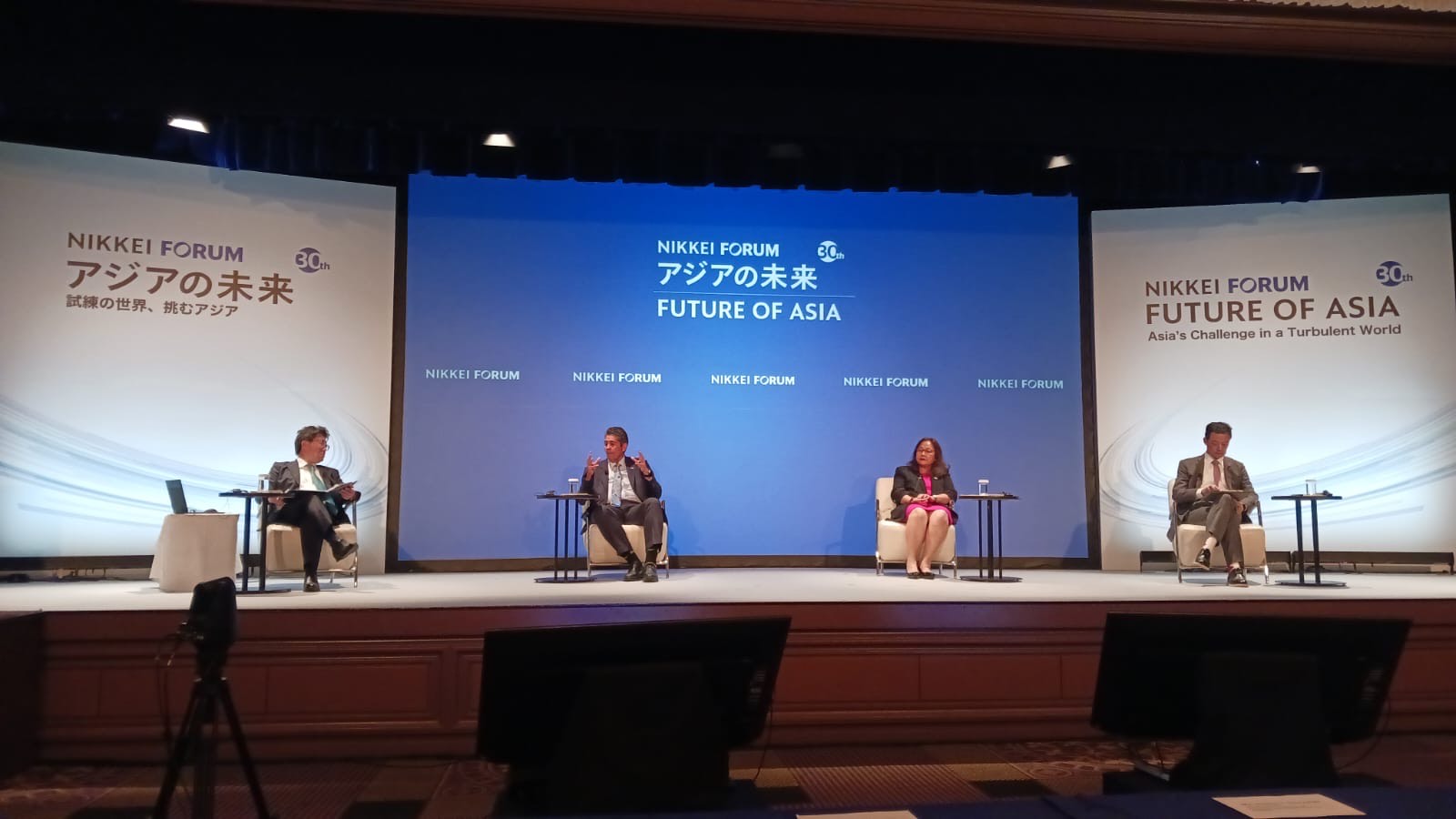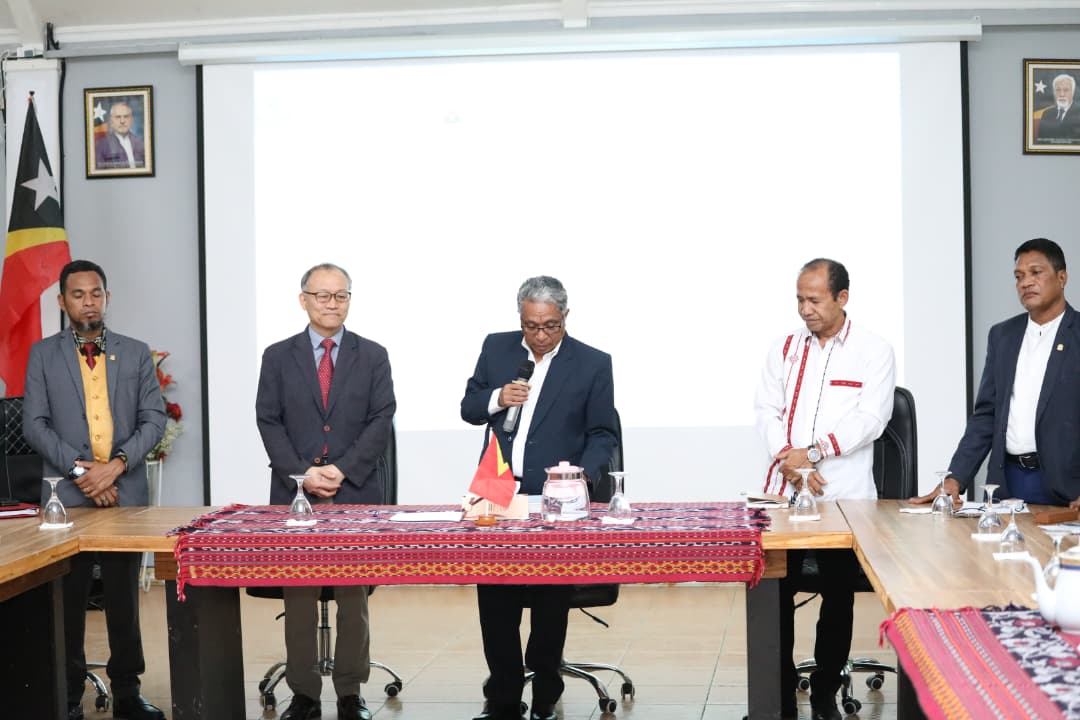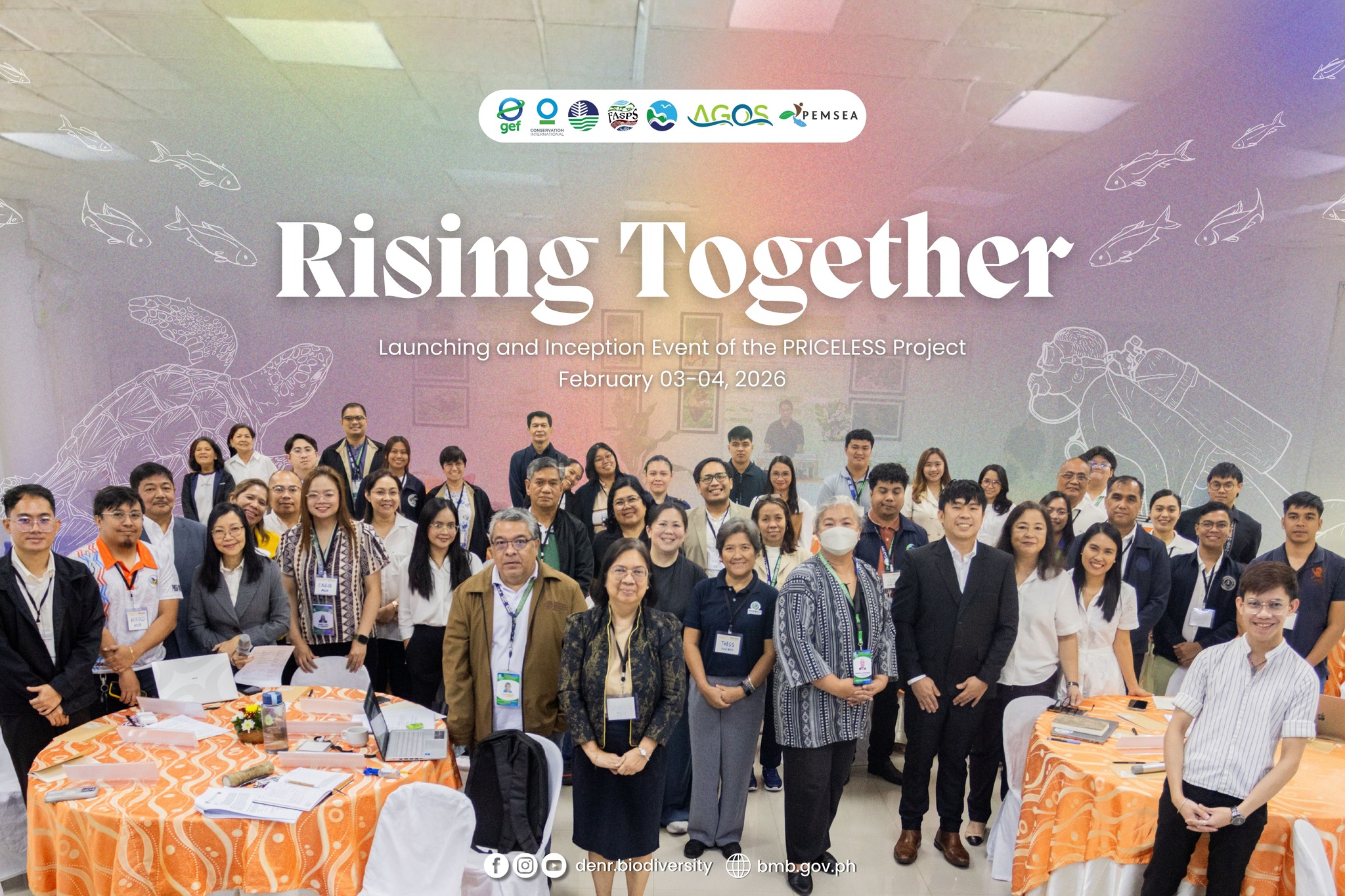International Panel Discusses Pathways to Sustainable Marine Resource Utilization
Friday, 30 May 2025

Leaders from across Asia and the Pacific came together on 29 May 2025 to tackle the growing crisis threatening the world's oceans, with top officials calling for stronger international cooperation to save marine resources that millions depend on for survival.
At the Nikkei Forum Future of Asia panel on "Sustainable Uses of Oceans and Marine Resources Supported by International Cooperation’, moderated by Dr. Atsushi Sunami of the Sasakawa Peace Foundation, PEMSEA Executive Director Aimee Gonzales emphasized the critical importance of science-based management and strategic partnerships in addressing regional marine challenges.
Ms. Gonzales introduced PEMSEA's role as a multistakeholder partnership specializing in ocean governance, bringing together governments at both national and local levels, research institutes & universities, NGOs, and international organizations across the East Asia Seas. She shared increased momentum of policies and actions to implement blue economies that balance conservation with sustainable resource utilization after the adoption of the Changwon Declaration in 2012.
Ms. Gonzales outlined pressing challenges facing the health of our common seas, including climate change, marine pollution, habitat and biodiversity loss and growing expansion of ocean based trade and infrastructure. These interconnected challenges require coordinated regional responses that PEMSEA facilitates through established networks and collaborative frameworks.
‘An unhealthy ocean erodes the ocean’s economic potential and market opportunities. PEMSEA promotes good ocean governance through the application of integrated coastal and river basin management and area- based management tools like marine spatial planning and ecosystems based fisheries management which emphasises stakeholder engagement to help reduce multiple use conflicts and costs of doing business.
When asked to comment on Asia’s maritime future amidst shifting political and economic currents, she responded that PEMSEA advocates for deepening technical cooperation and maintaining productive dialogue among country partners and stakeholders in the region.
Addressing Regional Challenges
President Surangel Whipps Jr. of Palau, co-chair of the High Level Panel for a Sustainable Ocean Economy, underscored Pacific island states' vulnerability to ocean degradation and climate change. He detailed Palau's Blue Prosperity Plan and the broader Pacific islands' "Unlocking the Pacific Blue Prosperity Plan," both requiring substantial international partnership in infrastructure, entrepreneurship, and capacity building.
President Whipps emphasized how sustainable ocean management impacts island nation development, from tourism recovery to maritime security partnerships and protected marine areas serving as regional cooperation models.
Ng Boon Heong, Executive Director of Temasek Foundation, presented private sector perspectives on sustainable ocean investment, detailing work in mangrove conservation, seaweed farming, and marine carbon dioxide removal experimentation. These programs demonstrate blended finance potential for blue economy initiatives while generating measurable environmental and social returns.
Dr. Sunami, the panel moderator further amplified the panel discussions by stating that effective ocean conservation requires integrated approaches combining research excellence, innovative financing, community engagement, capacity building and sustained political commitment.
/Klyra Orbien
***





